Dean Jones: the man who put the life into Australian cricket’s party
Dean Jones brought style, vitality and chutzpah, in a period of Australian cricket, just pre-Shane Warne, that sometimes wanted for it.
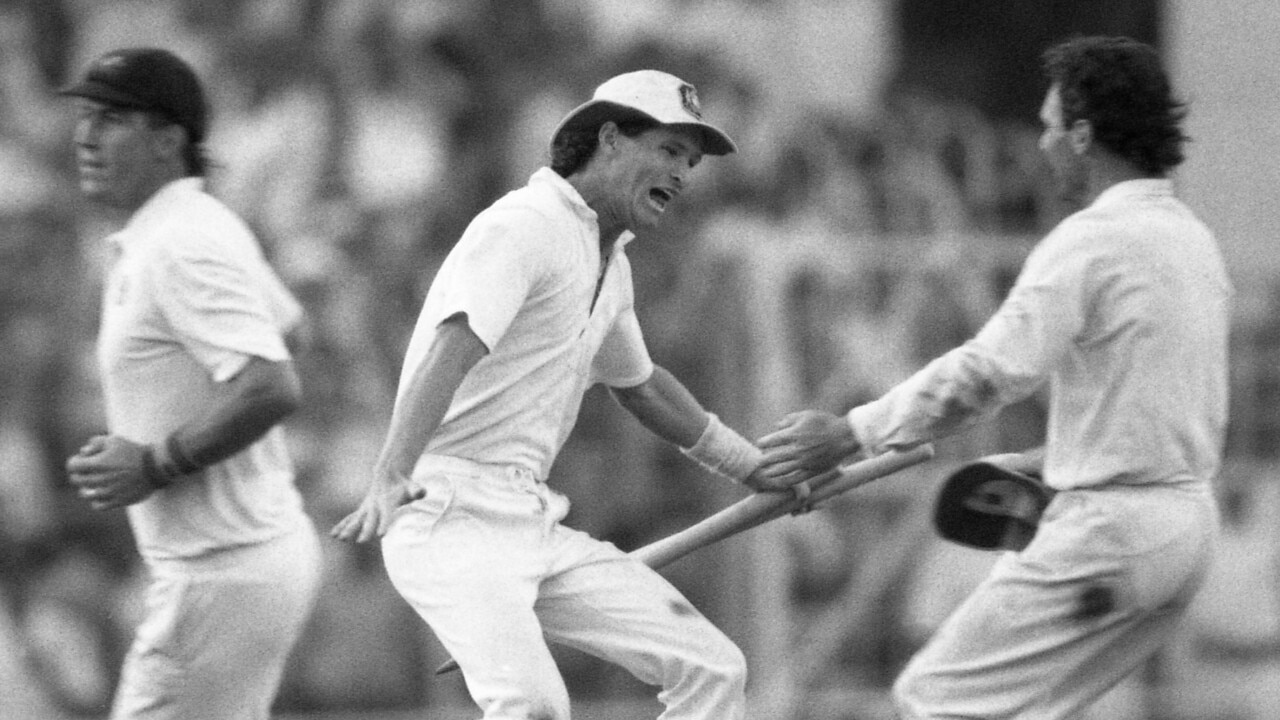
I like that story. I can hear it; can’t you? That was pure Jones. To 52 Tests and 164 one-day internationals, he brought style, vitality and chutzpah, in a period of Australian cricket, just pre-Shane Warne, that sometimes wanted for it. Craig McDermott recalled Jones’s noisy contributions in the field: “C’mon, we’re best in the world! Let’s show ‘em!” Australia wasn’t, not quite, but Jones somehow intuited it would be belief that got them there.
With what’s now a sad timeliness, Fox Cricket has been replaying one-day internationals from the 1980s and 1990s, in which Jones became perhaps the Australian game’s foremost drawcard. You can hear it in the commentators’ voices. They rise ever so slightly when he walks out; there is a sense of occasion, of imminent delight.
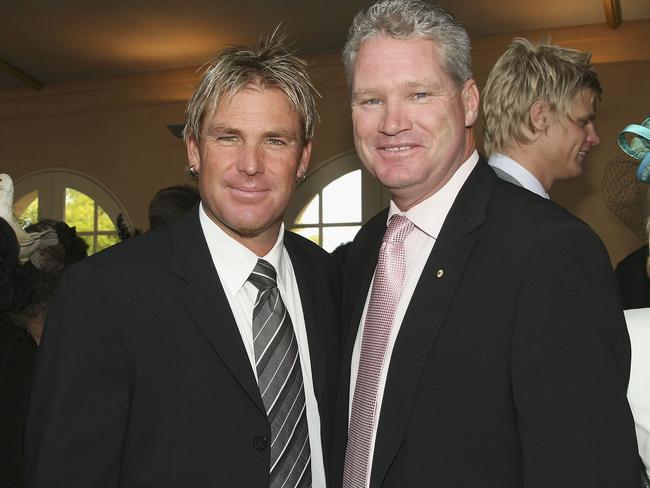
Teammates were connoisseurs of that walk. They looked out for the handkerchief hanging over the top of his trousers on the left-hand side and/or a thigh pad sash visible above the waistband. Then, if he was also dragging his bat slightly behind him, look out: “Ledge” (for Legend) was in the mood.
Last year, Jones was inducted in the Australian Cricket Hall of Fame. It was a slightly unusual inclusion, in that the hall is heavily weighted towards Test cricket. But it was arguably while watching Jones in his one-day raiment that Australians became aware they were watching a format in its own right, rather than simply a colourised, truncated and slightly accelerated Test cricket.
You saw him accessing untenanted parts of the field, knowing which fielders to challenge. You saw him run hard, in straight lines, on the pitch — it was a creed. You saw him sliding low into the crease before pelting back — the batsman’s version of the swimmer’s tumble-turn. You saw him in sunglasses — novel for the time, he felt they made sense for high catches.
You saw, in fact, a keen cricket intelligence in what purists still regarded as a crude alternative — the “pyjama game” — to the real thing. You also saw a distinctively Australian approach, to a genre of which the country’s players had hitherto been a little suspicious. On days he would bat, Jones would even eschew sugary breakfasts: too much sugar might make him skittish early on.
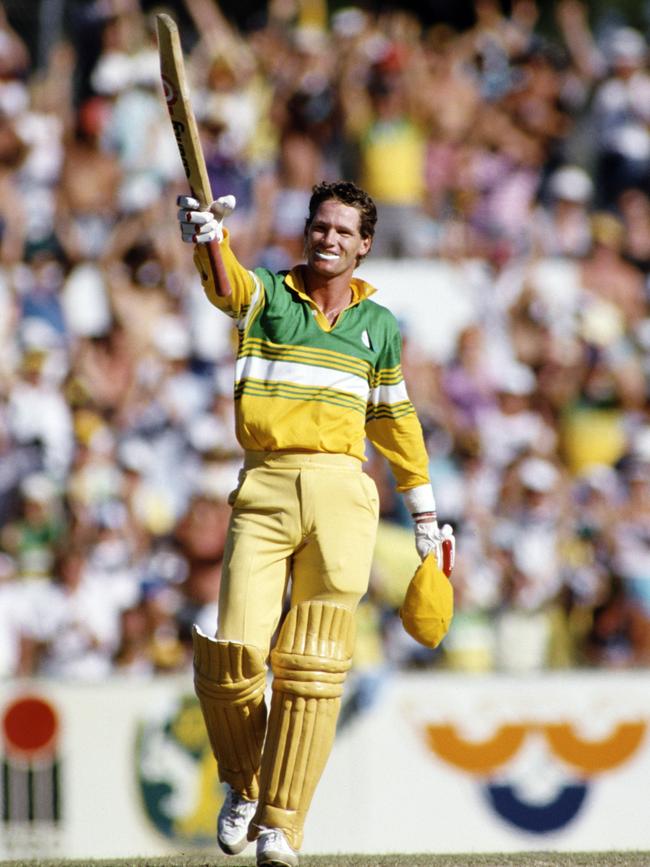
And people loved it. What also stands out in those Fox Cricket videos are the crowds, packed and heaving, on their feet every other ball, absorbing memories to last a lifetime.
Some years ago, a thriller writer rang me with a scenario. He was fixing a date in a novel for a criminal misdeed, and wanted in the background a Dean Jones one-day hundred on the television. What, he felt, could be more Australian? Deano lathering it round the MCG: for a few years it was like the soundtrack of summer.
Perhaps the one-day accomplishments have overshadowed Jones as a Test cricketer. His Test average was 49 at home, 44 away. His average partnership with Allan Border over 40 innings was 66. Such reliability was integral to Australia’s climb back from mid-1980s disrepute.
Border’s confidence in him was such that he drafted Jones, who had then played only two Tests, to fill the No 3 berth for Australia on the 1986 tour of India. In life-threatening heat in Chennai, Jones played the innings of his life, and his afterlife: 210 in Test cricket’s second tie.
Jones relished telling the story of it, although he felt ambivalent about sharing the man-of-the-match award with India’s Kapil Dev. Jones felt that Greg Matthews’s 10 wickets, including the last, counted for more: “He was the guy who made the match, not me or Kapil.”
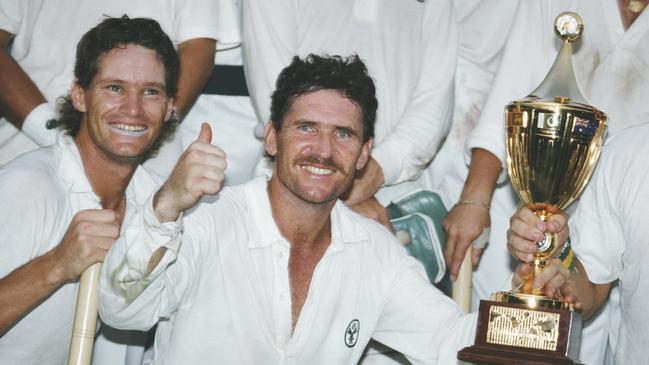
What was Jones like in person? There is a nice description of him early in his retirement by journalist Charles de Lisle in An Australian Summer (1999), with that anthropological edge that the English often bring to their antipodean observations: ‘“Deano’ is a boisterous, extrovert character, very Australian in his banter, his aggression, his swagger, his unrelenting search for the psychological edge … and his mobile telephone conversations really are punctuated with endearments like ‘Champ’.”
There was no side about him. He had a word for everyone. He had an opinion on everything but was interested in yours. He wrote well about the game, without fear or favour. His last book, Dean Jones’ Cricket Tips (2016), is a complete delight, replete with pithy advice.
He would go anywhere, including where others feared to tread, to Pakistan, to coach successfully in the Pakistan Super League. His dying in Mumbai is tragic but not unfitting: he loved India, loved the people, was a leader among Australians in turning it from a hardship posting into a preferred destination.
His enthusiasm was entirely infectious. For the last few years, Dean and I had a project running — not that this distinguished me, as he had irons in the fire everywhere. He had this notion that the story of the love affair of Ivo Bligh and Florence Morphy, which fostered the Ashes, would make a great small screen adaptation. He had in mind a sort of bat and ball bodice ripper — he described it, over and over, as cricket history meets Fifty Shades of Grey.
It was half an idea, really, but it got us into some fun meetings, where Dean’s confidence was so outrageous that it seemed within easy reach. And he would text at all hours with brainstorms, always going back, with increasing hilarity, to that original formulation … cricket history meets Fifty Shades of Grey. He was a man who lived every minute and, as popular heroes go, one of the more authentic ones.

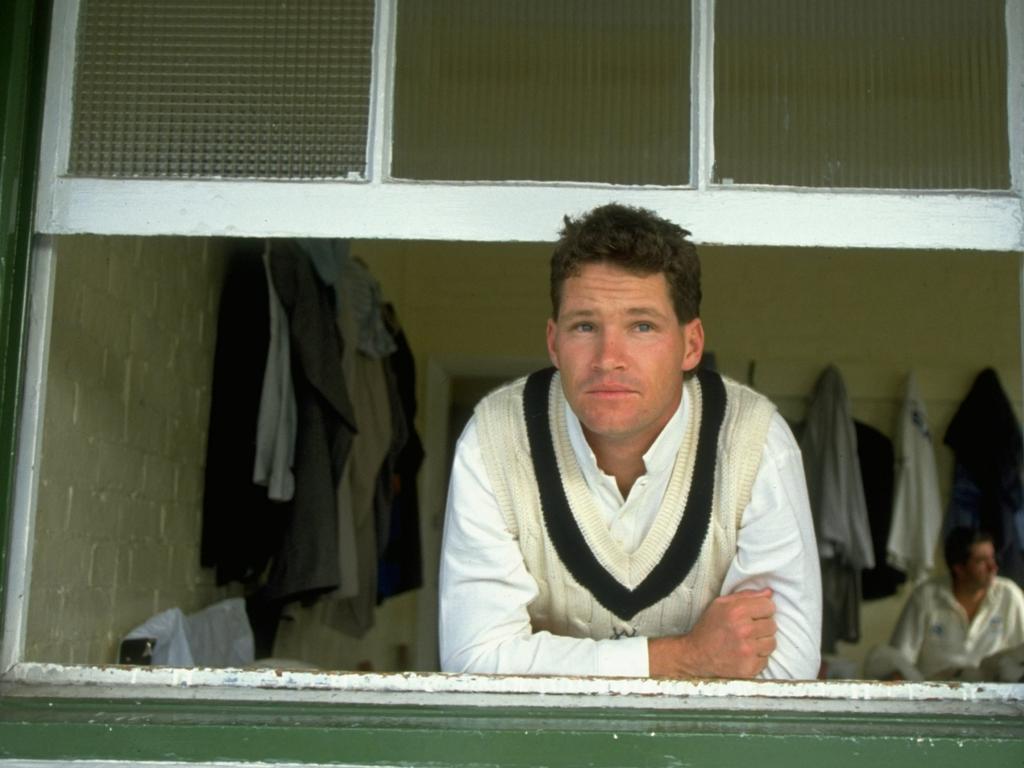
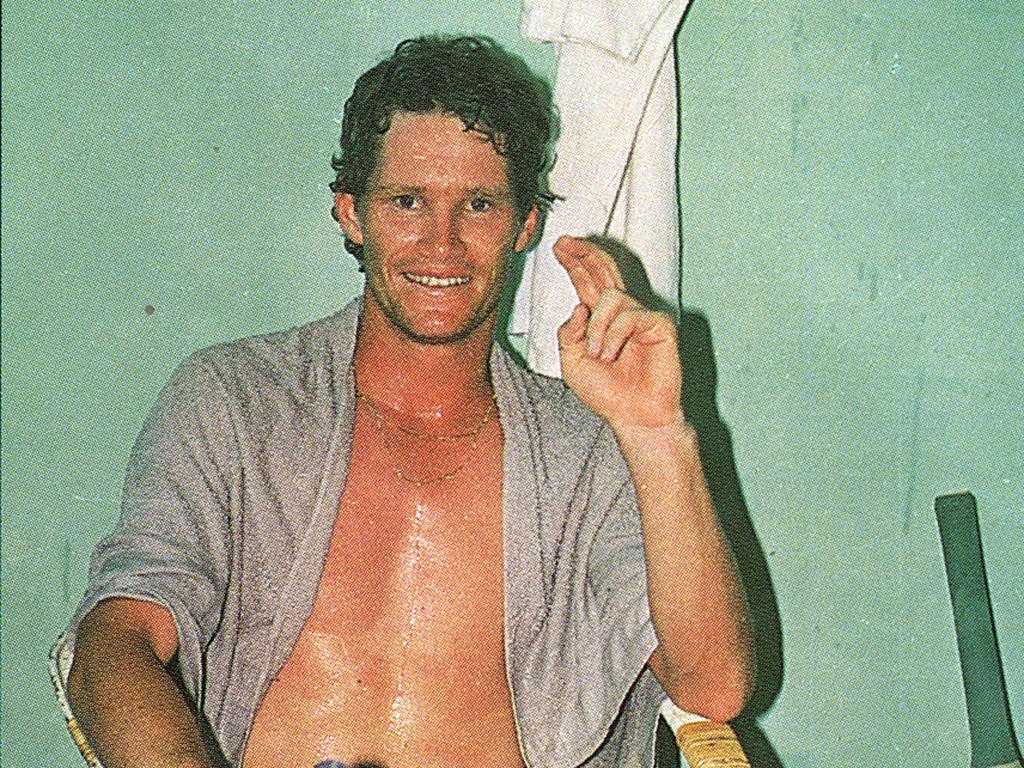




The English seamer Angus Fraser tells a story about bowling to Dean Jones in his pomp, at Trent Bridge in 1989. Fraser getting a bit straight, Jones played one of his goosestepping thwacks through mid-wicket, and sauntered casually down the pitch as the ball streaked for four. As they neared one another, Jones put in a word. “Didn’t you go to the team meeting?” he asked Fraser. “They’d have told you that you can’t bowl there to me.”